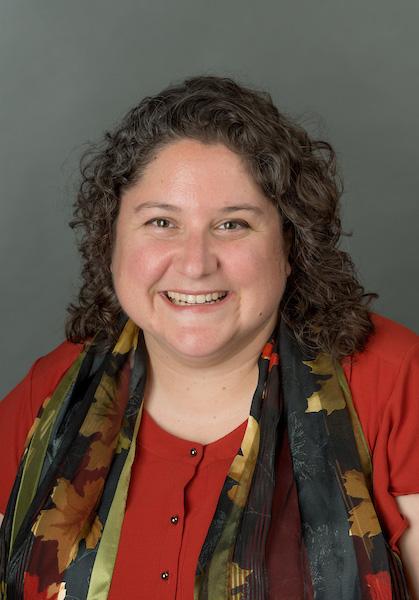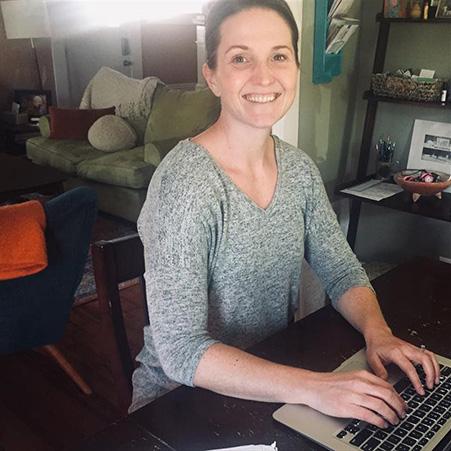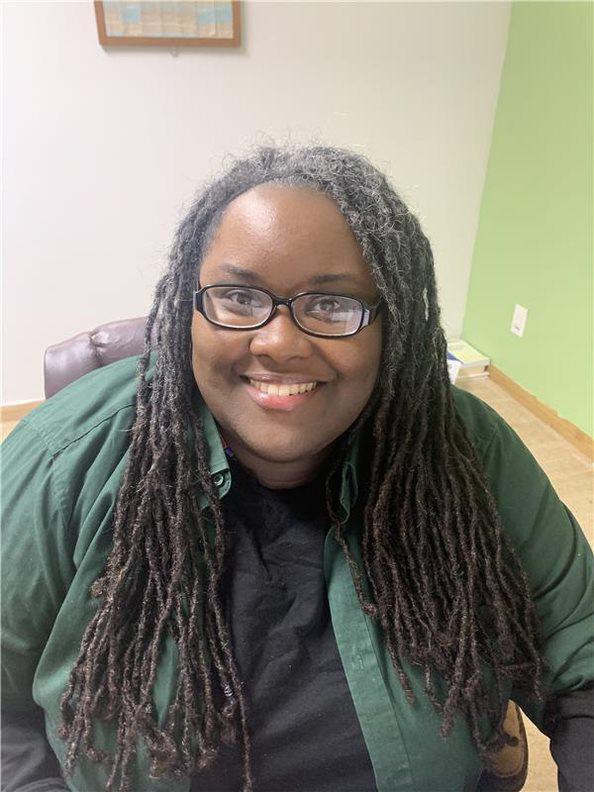Ask a group of people what makes Ohio University special and you’ll get many different responses. Bobcats value the connections they make with faculty, staff and fellow students. They build a strong affinity for their academic majors, groups they join, and places on campus and in the community.
The educational model that serves as the cornerstone for undergraduate education at Ohio University has required some adjustments over the past few weeks as the University responded to the COVID-19 pandemic by moving to online instruction for the remainder of the academic year.
Students are now completing their courses online. They access tutoring and other support services remotely. Faculty have shifted to online instruction. Staff who support students through services such as advising, now connect with students via phone or video meetings using tools like Microsoft Teams. Though students may not be able to drop by an advisor’s office for a chat in person, Ohio University advisors are still very much available and accessible, and they want students to feel supported wherever they are.
Julie Cohara, director of degree programs for University College, said during the first week of working remotely she realized that without consciously thinking about her surroundings she was making her way to her living room and sitting down on her couch every time she talked with a student. “It struck me that the couch became a physical location that helps me create a warm and relaxed environment for my conversations with students, even if we’re not sharing the same physical space,” she said. Though she’d still rather meet with students in person, Cohara is working to make the best of the current situation. “Many of our students are working through difficult situations and I really wish I could talk with them in person,” she added.
“I’m trying to ask more questions,” Cohara said, explaining that she wants to make sure students are OK. She has been having conversations with students about how their lives are disrupted, while also encouraging them to take a moment to pause, regroup and advocate for themselves. “I’m telling each student to stay in close touch with me and let me know what they need to succeed,” she said.
Cohara noted that some students intentionally avoid online classes so they may have increased anxiety about their courses that are now online. Students may be also be needing more, or different accommodations, so advisors have had conversations about reconnecting with Student Accessibility coordinators to reevaluate accommodations. Advisors are also helping students who are needing to figure out new plans to account for cancellations to study abroad or internship experiences.
Cohara said she continues to see the importance of human connections during this time of remote learning and instruction. “We’re working to provide more technology, software and tools, but having direct communication around instruction, advising and other services will always be critical,” she explained.
Adjusting to remote advising has been a challenge according to Cristy Null, assistant director of University College Advising and Student Services, but she is glad that most of her students seem to be adjusting well to online classes. Null is using tools like Teams to connect with students who are now back in their homes as far away as Puerto Rico. “I’m trying to pick up on and respond to anything that seems to be an issue for the student,” Null said. She noted that she and her colleagues are checking in with students to see how they are adjusting and ensure that they know Ohio University support services are still available to them.
Professional and student staff in the Academic Achievement Center and the Allen Student Advising Center worked quickly to shift to remote tutoring and advising.
Angela Lash, director of the Allen Student Advising Center (ASAC), said that the shift to remote advising has been an opportunity for learning and growth. “I think we've developed some systems that will make us more accessible to students even when we're able to return to in-person advising,” Lash said. Instead of walk-in advising, the ASAC is now offering 'virtual drop-ins' via Teams chat and Lash plans to continue that in the future. “Of course, when we're all able, we love for students to come see us in person, but why shouldn't they be able to chat us with quick questions too?"
Though this is a challenging time for the entire Ohio University community, there are always silver linings to be found in any challenging situation, and the opportunity for learning and growth. Joy Cobb, enrichment advisor in the Allen Student Academic Center, said she was impressed with how her colleagues came together to quickly adjust and adapt their approach to serving students. “We recognized that there are things that will be different, but technology has made it possible for us to adapt,” said Cobb.
Cobb said she is talking with students about the updated grading policy and scheduling, but perhaps more importantly, is taking the time to have conversations about how students are adjusting to their changing circumstances. “We can always talk about schedules, but that “how are you doing?” conversation is really beneficial,” Cobb noted.
Priority registration has begun for fall semester and returning students should make an appointment to talk with their advisor about schedules. Student can find their academic advisors in their MyOHIO Student Center . Allen Student Advising Center advisors will continue to provide additional academic advising for Athens Campus students via Teams. Allen Center advisors can help students explore academic options and work through academic situations.




